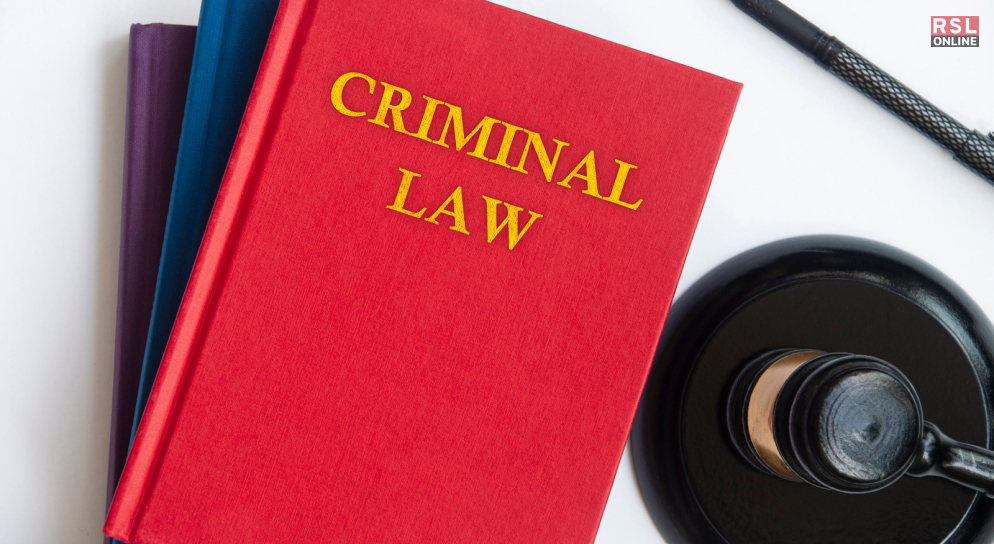The governance of a set of codified laws, rules, and regulations is what separates civilized societies from the uncivilized.
This becomes more important in democracies where rational logic, patterns, and an independent judiciary are present for the orderly conduct of society.
While the criminal legal system that we see today is highly complex and requires the assistance of criminal lawyers in Virginia, its humble beginning was far from being complex.
For most individuals and aspiring law students who want to understand the definition of criminal law and the nitty gritty surrounding it.
However, we arrived at this juncture, it would be best if we delved a little into history.
What we see today is the result of thousands of years of continuous evolution between what was considered wrong and what was deemed right. In this article, we are going to discuss the origins of criminal defense laws.
Definition of Criminal Law

If you go by the general definition of criminal law, they are the branch of laws that define and punish the offenders who have done harm to an individual or society at large.
It’s a key element of the system that demarcates itself from civil laws. The crimes that come under the definition of criminal laws include theft, arson, drug offenses, fraud, rape, abuse and others.
Definition of Criminal Law: Tracing the History Pages to Find Exact Origins

Records and documentation show that the first written and codified body of law was first created by the Sumerians in 2100 BC.
Sumeria was a geographical location that is now present-day Iraq.
They created two different types of documents that can be put under the heads of civil and criminal laws. The definition of criminal law definitely emerged here without a doubt.
In Europe, the earliest signs of any codified structure of law can be traced to the Duke of Normandy’s invasion of England.
William the Conqueror invaded England in 1066. Following this, the first traces of criminal law in various accounts have been reported.
However, the most formal and established body of criminal law, one whose form and function we still use in current times, came into force when the English Common Law was born in the 18th century. Common-Law set up two divisions between Civil and Criminal Laws.
Over time, English Common Law came to be adopted and altered by different nations and regions worldwide.
By a regular process of contributing to the body of laws, English Judges were able to build a comprehensive body of law.
The Establishment of Criminal Law in the United States of America
After Christopher Columbus formally discovered America in 1492, the period was followed by America becoming a colony of the British Empire.
The British introduced their Common Law in America and put in place a body of judges that would try the citizens for breaches of both civil and criminal cases.
The US Constitution that came into being in 1789 borrowed heavily from English Common Law.
The Founding Members of the Constitution set in place an independent and autonomous Supreme Court as the higher interpreter of the country’s legal system.
The present body of law that we now see in the United States is an interpretation of English Common Law.
In fact, modern bodies of legal systems in most democracies of the world have been borrowed and reinterpreted on English Common Law.
Three Types of Legal Cases in the United States of America
According to legal experts, in the USA legal body, there are three main types of lawsuits or cases that can be filed with the appropriate authorities-
1. Misdemeanor Lawsuit–
The first category of legal cases refers to the least serious of civil crimes. In such cases, cases are settled by paying a nominal fine or the forfeiture of property. These are cases that are disposed of in a fast and effective manner.
2. Felonies-
Felonies are classified as serious offenses that often result in stern punishments. Several white-collar crimes, assault charges, drug busts, and crimes that are considered detrimental to society are classified as felonies. The conviction here results in jail time at state or federal prisons.
3. Treason-
Treason was earlier classified as ‘War Crimes.’ In its modern connotation, it refers to crimes against the country. This may be in the form of selling defense secrets or engaging in acts according to the wishes of the representatives of some other country.
The Benefits of Hiring the Right Criminal Lawyer
Understanding the benefits of hiring the right criminal lawyer definitely becomes part of the definition of criminal law.
Yes, the definition of criminal law merely does not imply what it is. Understanding the major stakeholders is a part of gathering knowledge.
However, in this process (of understanding the definition of criminal law), we discuss the advantages of hiring a criminal lawyer.
1. Right to Advocacy
One of the elements that forms a part of the criminal law structure is advocacy. You need a criminal defense lawyer to prove that you are not guilty. If you are not charged with a crime, the government gives you every right to fight your defense.
2. The Criminal Defense Lawyer Are Well Equipped With the Right Knowledge
A criminal defense attorney is well-versed in current laws and regulations. His other knowledge of criminal law becomes important in extracting the right defense or justice, whatever you may seek.
3. Unrestricted Access to Resource
These legal experts have good negotiation skills. Yes, it’s one of the prime responsibilities of the criminal defense attorney to get you access to the evidence so that you can make the right judgment.
4. Advice on the Legal Matters
The criminal law professionals can help you in knowing the next course of action on the court premises.
He or she also sets your expectations and will offer you the foresight to take the necessary actions. It means they guide you through the entire case.
Besides, they offer you emotional support and handle the complex paperwork on your behalf.
The Bottom Line
In this article, we have tried to discuss and identify the origins of the modern criminal legal systems. As you can see from the article, evolution has taken place over thousands of years. A body of law can never be complete or static. It always evolves and adapts to the needs of the changing society where it needs to be practiced.
Read Also:




























